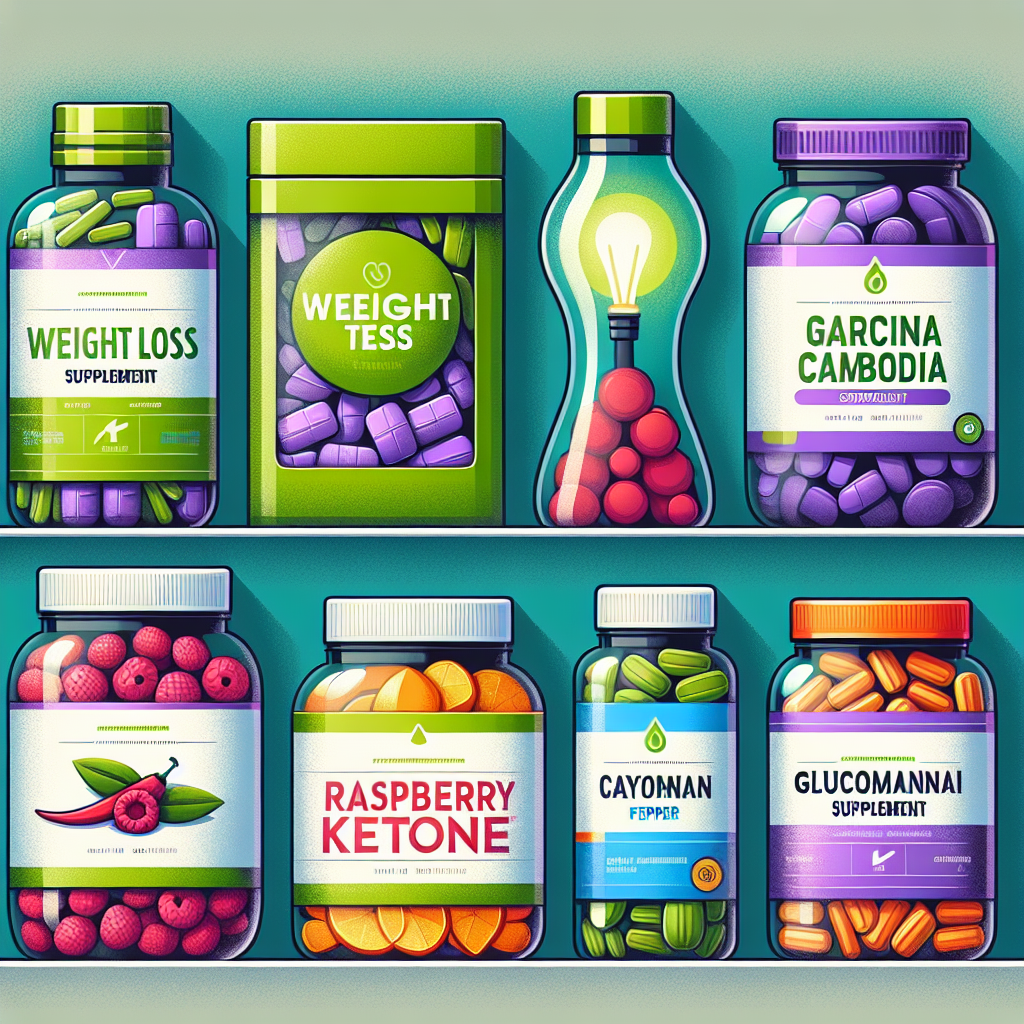Finding a truly effective weight-loss supplement can be confusing. Most products are overhyped, and even the best options deliver only modest benefits when paired with a calorie-controlled diet, regular activity, adequate sleep, and stress management. Below are five of the most researched and practical choices, along with clear pros and cons to help you decide what might fit your goals and health status.
1) Glucomannan (konjac root fiber)
Summary: A highly viscous soluble fiber that absorbs water to form a gel in the stomach, promoting fullness, slowing gastric emptying, and modestly reducing calorie intake. Some evidence also supports small improvements in cholesterol and blood sugar.
Pros:
– Solid evidence for satiety and modest weight reduction as part of a reduced-calorie diet
– Low cost and widely available
– May help LDL cholesterol and constipation
Cons:
– Must be taken with plenty of water to avoid choking or blockage
– Can cause bloating, gas, and stomach discomfort
– May reduce absorption of some medications if taken too close together
– Not appropriate for people with swallowing difficulties or certain GI conditions
2) Green tea extract (EGCG with caffeine)
Summary: Green tea catechins, especially EGCG, plus caffeine can slightly increase thermogenesis and fat oxidation; meta-analyses show small but significant effects on weight and body fat.
Pros:
– Modest boost to calorie burn and fat oxidation
– Often provides a mild energy lift and antioxidant benefits
– Widely available and relatively affordable

Cons:
– Can cause nausea, jitters, insomnia, or anxiety (caffeine-related)
– Rare cases of liver injury with high doses, especially on an empty stomach
– Potential interactions with stimulant medications; not ideal during pregnancy/breastfeeding or for caffeine-sensitive individuals
3) Protein powder (whey or plant-based)
Summary: Increasing protein helps preserve lean muscle during weight loss and improves satiety. Meal-replacement shakes and protein supplementation have strong evidence for aiding weight loss and maintenance when calories are controlled.
Pros:
– Supports fullness and muscle retention in a calorie deficit
– Convenient, customizable, and available in dairy and vegan options
– Generally well tolerated and versatile in meals
Cons:
– Calories still count; some products contain added sugars
– Possible GI discomfort, lactose issues, or allergies
– Choose third-party tested brands to avoid contamination; use caution with kidney disease
4) Berberine
Summary: A plant alkaloid that influences glucose and lipid metabolism (via AMPK activation). Trials suggest modest reductions in body weight and waist circumference, especially in people with insulin resistance, PCOS, or fatty liver.
Pros:
– May improve blood sugar, triglycerides, and cholesterol

– Non-stimulant approach to appetite/metabolic support
– Potentially helpful for metabolic syndrome features
Cons:
– GI side effects (cramping, diarrhea, constipation) are common at first
– Drug interactions (CYP3A4, P-gp); can potentiate glucose-lowering meds
– Not advised in pregnancy or breastfeeding; quality varies widely between brands
5) Capsaicinoids/capsiate (chili pepper extracts)
Summary: Compounds that mildly increase thermogenesis and fat oxidation and may reduce appetite. Effects are small but fairly consistent across studies.
Pros:
– Non-stimulant option for a slight metabolic boost
– Capsiate offers similar effects with less “heat” than capsaicin
– Generally inexpensive
Cons:
– Effect size is small; won’t move the needle without diet and exercise
– Can aggravate heartburn, reflux, or IBS; capsaicin may cause GI burning
– Not suitable for people with sensitive stomachs or certain GI conditions
Closing thoughts: No supplement replaces the fundamentals: a calorie-appropriate, protein- and fiber-rich diet, resistance training, daily movement, sufficient sleep, and sustainable habits. If you try a supplement, introduce one at a time so you can gauge tolerance and benefit, and choose products that are third-party tested (USP, NSF, Informed Choice). Avoid proprietary blends and stimulant-heavy formulas (for example, synephrine or yohimbine) due to safety concerns. Finally, speak with a healthcare professional before starting—especially if you’re pregnant, breastfeeding, have medical conditions, or take medications—since interactions and side effects can occur even with “natural” products.

